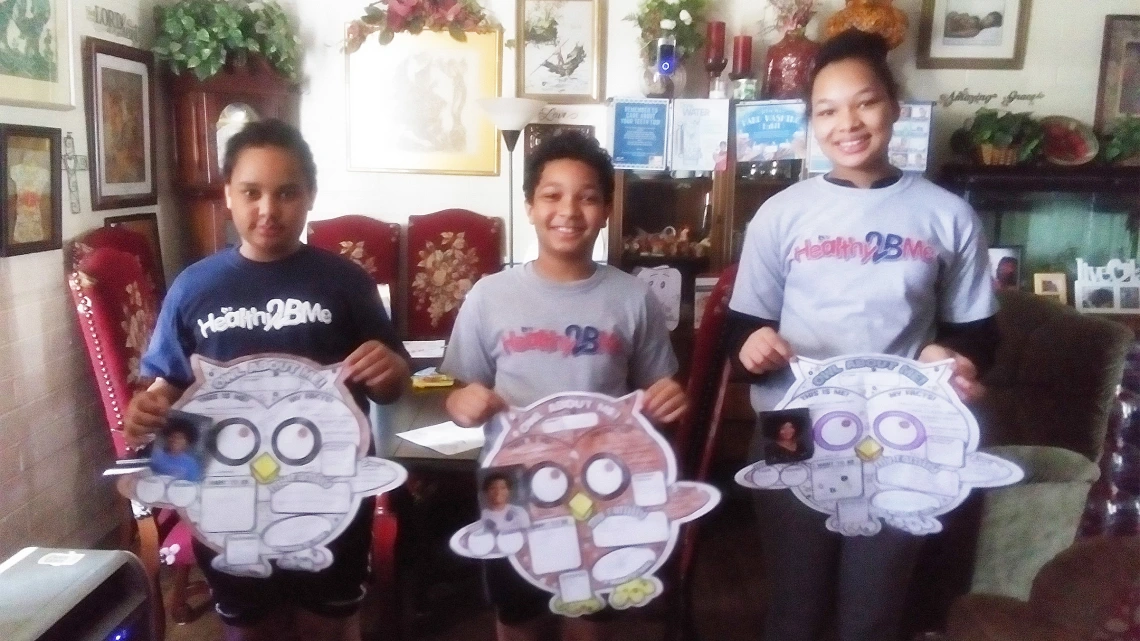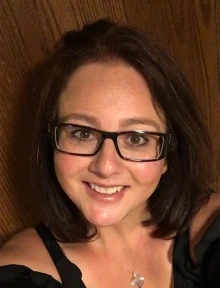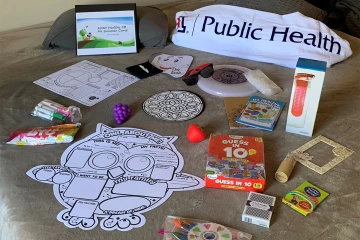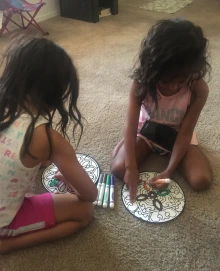Building a ‘Healthy Kids’ Summer Camp During a Pandemic
How the Mel and Enid Zuckerman College of Public Health pivoted to keep its annual camp up and running during a summer without in-person activities.

Siblings from the White family show off one of their camp projects.
Faculty and staff across the University of Arizona Health Sciences have successfully pivoted their higher education and research activities in response to COVID-19, but the pandemic posed a distinctive challenge for an annual kids’ summer camp offered by the Mel and Enid Zuckerman College of Public Health: was it possible to deliver a version of summer camp without any kids gathering in person?
There was no playbook, and not much time to decide.

Nicole Bergier coordinates the Healthy 2B Me camp.
She decided to create a new approach and called it “Camp in a Box.” During four sessions, each one week long, she was able to reach 26 Tucson families, and a total of 55 kids, with the eighth iteration of the camp.
Healthy 2B Me was developed by the Canyon Ranch Center for Prevention and Health Promotion (CRCPHP) to engage kids ages 7-10. Every previous year, the week-long day camp engaged kids with fun and healthy activities like swimming, yoga, Zumba, team building, and cooking demonstrations, while they learned about sun safety, dental hygiene, tobacco prevention, nutrition, germ safety and more.
This year, the camp took the shape of a week-long schedule of health-promoting activities built around developing healthy habits and family interaction at home.
Pivoting from in-person summer camp to at-home activities
To produce the Camp in a Box, Bergier worked with student interns, all of whom were remote and communicating over Zoom. MPH student Ricardo Montejano guided the process and coordinated with public health undergraduate students Keye Garman, Ivan Kamali, Ricky Tran and Erendira Zazueta.

Each camper received a box of materials, including fresh foods, for interactive camp activities.
The first week served families whose kids had attended Healthy 2B Me previously; the second week reached families from Dietz K-8 School; the third week engaged families from Prince Elementary school; the fourth week reached families that had applied to the camp before COVID-19 shut things down.
At the start of each week, Bergier and her team delivered the boxes that contained Camp in a Box to each family’s home, using public health practices to keep everyone safe. The boxes included all the camp supplies, the binder guide for the week’s activities, and healthy groceries. Bergier then communicated with the families by phone and email to support the camp program during the week.
‘I’m really proud of what we accomplished’
While a formal review of the program is underway, the feedback has been promising.

Kids in the Gastelum family color mandalas as part of an exercise in mindfulness during the Healthy 2B Me camp.
Bergier recently won a University of Arizona 2020 Award for Excellence for her work with the Healthy 2B Me camp and the Canyon Ranch Center for Prevention & Health Promotion. One nominator called her "an invaluable asset and inspiration to our students and staff," while another praised her leadership of the Healthy 2B Me summer camp for children in underserved communities.
“The idea behind Healthy 2B Me is to instill healthy behaviors in young children,” said Cynthia Thomson, PhD, RDN, Canyon Ranch Center for Prevention & Health Promotion director, and a professor in the College of Public Health. “Nicole did an amazing job of adapting to difficult circumstances and still reaching kids and families with health promotion activities.”

